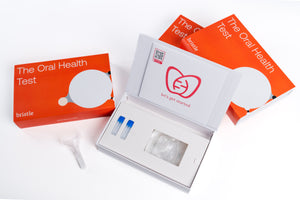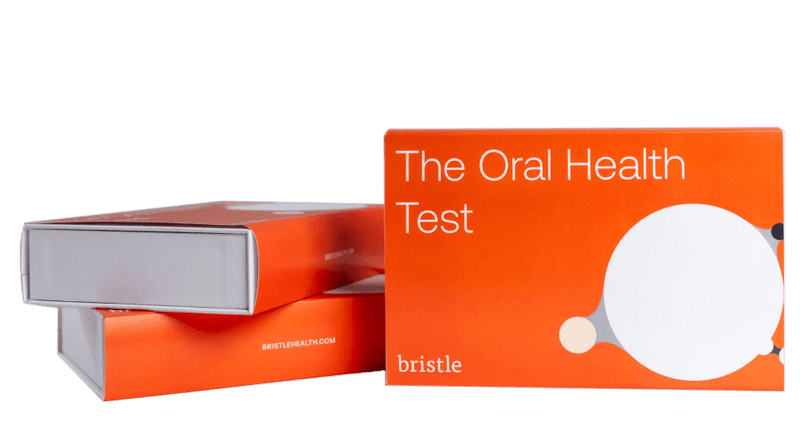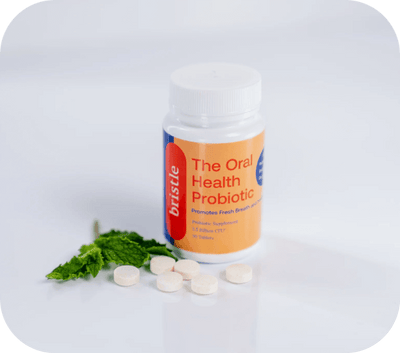Bleeding gums are usually an early symptom of gum disease, but there are other reasons for bleeding gums that you should also pay attention to. In this article, we’ll discuss the different reasons why gums bleed, and how you can fix it.
Causes of bleeding gums
There are several reasons for bleeding gums, the most common one is gum disease. There are many forms of gum disease, which are discussed below, including how other medical conditions might affect bleeding gums.
The oral microbiome and bleeding gums
Research shows that people with bleeding gums have significantly altered oral microbiomes compared to healthy people. You might ask, what is the oral microbiome? The oral microbiome is the community of bacteria, fungi, and viruses in your mouth that live with you symbiotically to maintain your health. While the gut harbors the most diverse and abundant microbiome in your body, your mouth holds the second most diverse microbiome, the oral microbiome (1).
Studies have demonstrated that oral microbiome dysbiosis, an imbalance of microbes in the mouth allows for pathogenic microbes to grow, and cause disease. Reducing the levels of pathogenic microbes and restoring a balance of healthy commensal microbes is associated with a reduction in gum disease symptoms, such as bleeding gums and bad breath (2).
Plaque-induced gingivitis and bleeding gums
Plaque-induced gingivitis is incredibly common, estimated to affect over 75% of the world’s population. This form of gingivitis is typically caused by poor oral hygiene. Bacteria in the mouth form a layer of plaque on the tooth surface between the tooth and the gums. This plaque is pro-inflammatory, and irritates the gum line, recruiting immune cells that can cause gum inflammation. The persistent inflammation leads to bleeding.
The bacteria that live in plaque are not all bad. Some bacteria are more pro-inflammatory than others, and can more easily lead to bleeding gums. Research shows that bleeding gums compared to healthy gums harbor different levels of bacteria, and different types (3). Bleeding gums have a distinct microbial community, also known as the oral microbiome, of pro-inflammatory and pathogenic bacteria that are known to cause gum disease. By contrast, healthy gums have their own distinct microbiome with commensal healthy bacteria that maintain homeostasis with your mouth, and prevent guminflammation.
If left unresolved, gingivitis can lead to periodontal disease, which may lead to the permanent loss of teeth.
Acute necrotizing ulcerative gingivitis
Acute ulcerative necrotizing gingivitis (ANUG) is a rare condition caused by a bacterial infection. ANUG is more common in immunocompromised patients, as they are more susceptible to infection than people with normal immune systems (4). During ANUG, the infection rapidly destroys the gum tissue, creating holes in the tissue that can bleed.
Research shows that specific bacteria are capable of causing ANUG, such as Fusobacterium nucleatum, Prevotella intermedia, and Treponema species (5). Notably, these species are also implicated in the progression of periodontal disease, a more common and slowly progressing disease.
Periodontal disease and bleeding gums
Periodontal disease is an irreversible form of gum disease that is characterized by gum recession, increased pocket depth, bleeding on probing, and eventual tooth loss. Gum recession is when the gum line wears away and the roots of the teeth become exposed. Gingival pockets are the grooves between your teeth and gums. The deeper these are, the worse the degree of periodontal disease.
Periodontal disease requires significant dental treatment, usually starting with a deep cleaning also known as scaling and root planing, where plaque that has accumulated deep in the pockets is removed by a dental hygiene professional. However, due to the increased pocket depth, these pockets acquire plaque more readily, and require consistent maintenance to reduce the levels of pathogenic bacteria in them. This maintenance can help reduce the progression of disease.
Periodontal disease is caused by oral microbiome dysbiosis. Research now shows that specific bacteria can trigger the progression of periodontal disease, and antimicrobial therapy may be able to stop disease from getting worse.
Of note, periodontal disease is also correlated with
Brushing and flossing technique
One cause of bleeding gums that is often overlooked is the intensity of brushing. You can learn some tips to improve your brushing and flossing routine in article linked here (6).
Pregnancy gingivitis
Pregnant mothers are at higher risk of bleeding gums, a condition called pregnancy gingivitis. You can read more about pregnancy gingivitis here.












